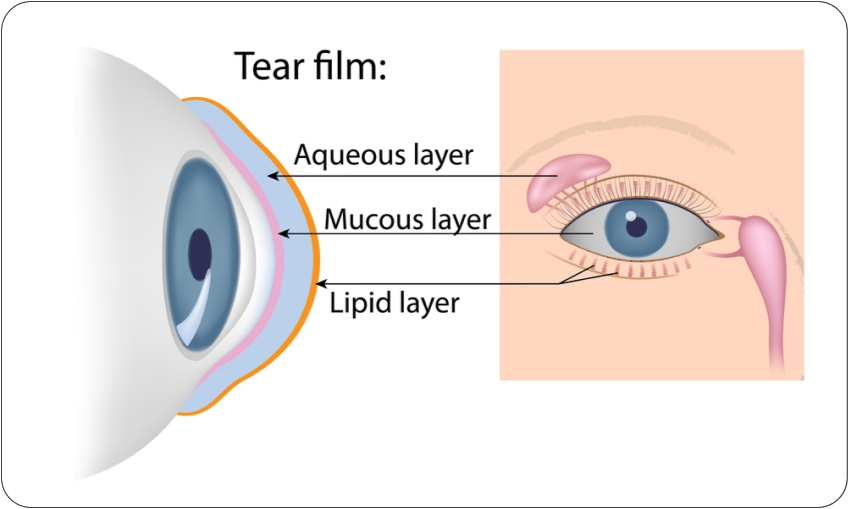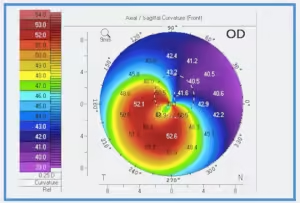How can watery eyes be dry?

Have you been told that your constant watery eyes are actually Dry Eye Syndrome? Although it seems counterintuitive, watery eyes can actually be a symptom of dry eyes. This phenomenon occurs due to your body’s attempt to compensate for a lack of sufficient tear film. Dry eye is a common condition that affects millions of people worldwide. It is more prevalent among older adults, particularly those over the age of 50.
Tear film is a thin layer of liquid that covers the surface of the eye. It is made of three layers and each layer has a specific purpose:
1. An oily layer: this layer is produced by Meibomian glands located in the eyelids, and helps prevent evaporation of tears
2. A watery layer: this layer is produced by the lacrimal gland, and it’s job is to nourish the eye
3. A mucin layer: this layer is closest to the eyeball and helps the tear film stick and spread evenly across the surface of the eye

The tear film lubricates the eye, reduces friction when blinking and provides a smooth surface for the eyelids to glide over. It also protects the eye from foreign particles, irritants and infections.
An imbalance in any of these layers can lead to an unstable tear film that breaks down, leading to exposed and dry patches on the surface of the eye, commonly known as Dry Eye Syndrome. This lack of moisture and lubrication can cause damage to the surface of the eyes. Dry eye can be classified into two main types – aqueous-deficient dry eye and evaporative dry eye. Aqueous-deficient dry eye occurs when the lacrimal glands do not produce enough tears, while evaporative dry eye happens when there is an issue with the oil layer of the tear film, leading to increased tear evaporation.
Surprisingly, one of the most common symptoms of Dry Eye Syndrome is actually watery, teary eyes. This can be accompanied with or without other symptoms including gritty, burning, dry red eyes or intermittently blurry vision.
When your eyes are dry, the lacrimal glands can become over-stimulated to produce more of the watery layer in your tear film. These tears are often called ‘reflex tears’ and because of their watery composition they lack the necessary components to stay on the surface of the eye, and instead they overflow and create a constant sensation of watering.
Dry eyes can significantly impact a person’s quality of life. It can cause discomfort, affect visual acuity, and interfere with daily activities such as reading, working on a computer, or driving.
It is important to note that watery eyes have other causes as well; therefore it is important to make an appointment with your eye specialist at Nexus Eye Care for a full eye examination and appropriate treatment options.
Stay tuned for our next blog on Dry Eye treatment options.



